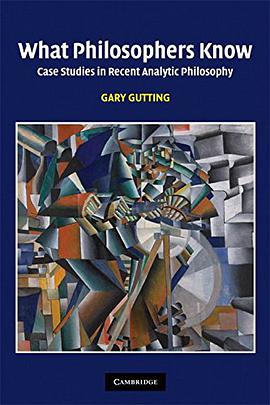What Philosophers Know
豆瓣
Case Studies in Recent Analytic Philosophy
Gary Gutting
简介
Philosophy has never delivered on its promise to settle the great moral and religious questions of human existence, and even most philosophers conclude that it does not offer an established body of disciplinary knowledge. Gary Gutting challenges this view by examining detailed case studies of recent achievements by analytic philosophers such as Quine, Kripke, Gettier, Lewis, Chalmers, Plantinga, Kuhn, Rawls, and Rorty. He shows that these philosophers have indeed produced a substantial body of disciplinary knowledge, but he challenges many common views about what philosophers have achieved. Topics discussed include the role of argument in philosophy, naturalist and experimentalist challenges to the status of philosophical intuitions, the importance of pre-philosophical convictions, Rawls' method of reflective equilibrium, and Rorty's challenge to the idea of objective philosophical truth. The book offers a lucid survey of recent analytic work and presents a new understanding of philosophy as an important source of knowledge.
contents
Acknowledgments ix
Introduction 1
PART I: HOW DOES THAT GO? THE LIMITS OF PHILOSOPHICAL ARGUMENTS
1 Quine’s “Two Dogmas”: argument or imagination? 11
2 Argument and intuition in Kripke’s Naming and Necessity 31
3 The rise and fall of counterexamples: Gettier, Goldman, and Lewis 51
4 Reflection: pictures, intuitions, and philosophical knowledge 73
PART II: ARGUMENTS AND CONVICTIONS
5 Turning the tables: Plantinga and the rise of philosophy of religion 105
6 Materialism and compatibilism: two dogmas of analytic philosophy? 122
7 Was there a Kuhnian revolution? Convictions in the philosophy of science 151
8 Conviction and argument in Rawls’ A Theory of Justice 173
PART III: PHILOSOPHICAL TRUTH AND KNOWLEDGE
9 Rorty against the world: philosophy, truth, and objectivity 197
10 Philosophical knowledge: conclusions and an application 224
References 243
Index 248